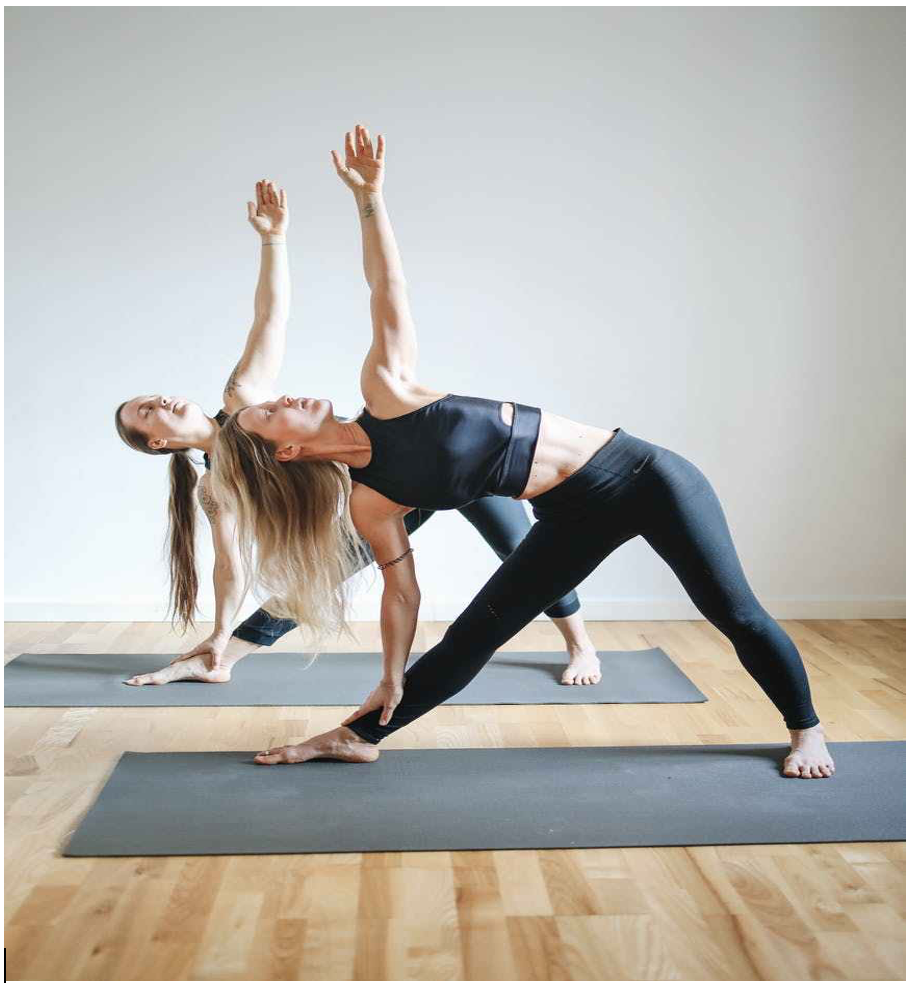Coping with a COVID Winter
Author:Taylor Nelles-McGee
Eight months into the COVID-19 pandemic restrictions, the prospect of surviving a Canadian winter is a little daunting. It isn’t uncommon for winter to feel long, dark, and isolating; conditions that can put strain on one’s mental health. According to the Canadian Mental Health Association, approximately 2-3% of Canadians will experience Seasonal Affective Disorder (SAD) in their lifetime. An additional 15% of Canadians may experience milder symptoms of SAD (dips in mood, increased fatigue, etc). While not everyone experiences full-blown SAD, more than ever, it’s important that we arm ourselves with strategies to cope, stay healthy, and keep our spirits up. Below is a list of tips, tricks, and resources that will (hopefully!) help see us through this challenging time!
1. Establish a Regular Routine Now (and Stick to it!)
We’ve all been making the same joke; COVID-19 restrictions are beginning to feel a lot like groundhog day. Every day can feel exactly the same, and it can be a real challenge to feel productive, alert, and optimistic while spending hours and hours on Zoom, working and living in the same space, and without being able to participate in many of the things we typically look forward to. While it seems counter-intuitive, setting a schedule for yourself can help give your day a contour. A regular sleep schedule is extremely important for physical and mental health. Try to consistently go to bed at the same time and wake up earlier to maximize the time you’re spending in daylight. On Sundays (or whatever day works best for you), make a plan for what you need to get done each day that week to avoid the last-minute scramble. If you’re someone who can get caught scrolling social media for hours, schedule time away from your phone, and try to stay off screens for at least an hour before bed.


2. Get Some Sun
Especially as the days get shorter, finding some sunlight is super important. If you can, try to work near a window as much as possible, and make sure you take breaks to go outside. As the weather gets colder, it’s easy to default to remaining indoors. If you’ve been thinking about sourcing some cold-weather gear to stay cozy on the chilliest days, now is the time! If your work or living space does not feature a window, consider a SAD lamp which works to replicate daylight and may help soothe some symptoms of SAD. Check out this list for several options at varying price points or look for one on a reselling platform like craigslist or Facebook Marketplace.
3. Eat Well
Good nutrition is extremely important for mental and physical health. Make sure you are getting enough protein, carbs, and vitamin D to keep your brain and body fueled and happy. If you love to cook, consider trying out some new recipes as a pandemic project and then deliver - at a distance - some tasty treats to friends and family to brighten their day! If you are not a fan of cooking, consider meal prepping and planning ahead so you have a variety of healthy, easy options at the ready.
4. Exercise
As we move indoors (and with gyms continuing to be closed or operating at reduced capacity), finding ways to stay active can be a challenge. Including a daily walk in your schedule, even when the cold weather hits, is a great way to stay moving and reduce stress. If you’ve always thought about doing a Couch to 5k program or setting a step goal (most phones have a built-in pedometer), this could be a great motivator to get out the door this winter (just be careful on the ice!). If you’re missing the gym, there are tons of free online fitness classes available. The Nike training app has a huge variety of workouts for all fitness levels, from strength training, to bodyweight workouts, to HIIT, to yoga. Alternately, check out grouphiit.com for free HIIT workouts that you can sort by parameter, including fitness level, workout time, and more. If yoga is more your speed, Yoga with Adriene is a great YouTube channel that offers a variety of different yoga classes.

5. Watch out for Zoom Burnout
Recently CTV posted this helpful article about helping children avoid Zoom burnout. Whether you have kids or are feeling some Zoom fatigue of your own, they offer some great suggestions. Taking notes (on paper) as you listen can help you stay focused. When possible, setting boundaries for how much time you’re spending on Zoom daily, taking stretch breaks, and making sure you leave yourself transition time between meetings are all useful tools to combat burnout.
6. Socialize
While in-person gatherings may not be possible for a while, consider setting up weekly check-ins with friends online or on the phone. This can be simply to chat, or for a weekly game night, book club, or even a cooking club - get creative! It can feel hard to properly connect with friends and family when we’re unable to be in the same space, so if you’re feeling weary from living online, socially distanced outdoor walks can be a nice way to see each other. Alternately, dropping off a note or a treat, or writing a letter to a pal can be a fun way to embrace the distance and bring someone you love a bit of cheer.

7. Self-Care
Taking care of yourself is more important now than ever. Staying positive in the face of our current situation is challenging. As part of your self-care practice, consider starting a gratitude journal or any journaling practice that feels therapeutic for you. You may also want to check out one of these free coping skills workbooks from Simon Fraser University. If you’re feeling like a change of scenery, spruce up your living space. Give it a good clean and make it somewhere cozy and homey that you want to be. Switch up some decor if that’s your thing. If money is tight, this can be a great opportunity to be creative - check out some easy home DIYs and get to work!
8. Make Things Special
With cold, dark winter days ahead, and COVID-19 monopolizing your newsfeed, adding special moments to your week can do a lot to add joy and happiness to your daily life. Pick a day of the week to have a special meal, block off time to catch up with a friend, and lean into the little rituals and habits that make day-to-day life special. This can be as simple as coffee in your favourite mug, uninterrupted reading time, or some nice soap that makes all the handwashing worth it.

9. Seek Help When Needed
Winter is hard, COVID is hard, grad school is hard. There is no shame in needing help, and if you are struggling, there are resources available.
EmpowerMe is a confidential support service available to graduate students at McMaster 24/7, 365 days a year. It is a confidential, multilingual service that is culturally sensitive and gender and faith inclusive. They offer phone, video-conferencing, and in-person support for issues including stress or anxiety, depression, relationships or interpersonal conflicts, family responsibilities, substance use, disordered eating, time management, career counselling, financial planning or financial insecurity, nutrition, and more.
McMaster Wellness offers a consultation appointment to get students set up with resources and supports to fit their needs, as well as wellness education around mental health, managing stress, mindfulness, physical health, sexual health, and more.
If you are in crisis and based in Hamilton, the St. Joseph’s Hospital Crisis Outreach and Support Team (COAST) can be reached at 905 972-8338. If you are elsewhere in Ontario, or have specific needs, a comprehensive list of emergency mental health lines is available here.
Lastly, Mind Your Mind has a great list of contacts whatever your needs are, including therapy referral services, online peer support, and more.